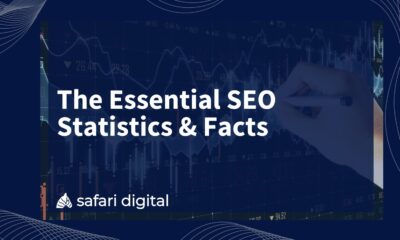Forex
How Forex Brokers Work
Published
11 months agoon

The foreign exchange market, often referred to as the forex market, is the largest and most liquid financial market in the world. It involves the trading of currencies from various countries, where participants can speculate on the price movements of currency pairs.
Forex brokers play a crucial role in facilitating these transactions, acting as intermediaries between retail traders and the broader forex market. This article aims to provide a comprehensive overview of how forex brokers work, including their functions, types, business models, and the essential factors traders should consider when choosing a broker.
Functions of Forex Brokers
Forex brokers serve as intermediaries, connecting retail traders to the interbank forex market where currencies are traded. Their main functions include:
- Execution of Trades:
When a retail trader places an order to buy or sell a currency pair, the broker executes the trade on their behalf. This involves finding a counterparty for the trade, either within the broker’s own network or in the interbank market.
- Providing Trading Platforms:
Forex brokers offer trading platforms that allow traders to access the forex market, execute trades, and monitor their accounts. These platforms can vary in terms of features, user interface, and compatibility with different devices.
- Market Analysis and Research:
Many brokers provide market analysis, research, and educational resources to help traders make informed decisions. This can include technical and fundamental analysis, economic calendars, and educational materials.
- Leverage:
Brokers often offer leverage, allowing traders to control a larger position size with a smaller amount of capital. While leverage can amplify profits, it also increases the risk of significant losses.
- Risk Management Tools:
Some brokers offer risk management tools such as stop-loss and take-profit orders, which help traders manage their positions and protect their capital.
- Account Types:
Brokers offer various types of accounts with different features, such as standard accounts, mini-accounts, and micro-accounts. These accounts cater to traders with varying levels of experience and capital.
Types of Forex Brokers
Forex brokers can be categorized into several types based on their business models and how they execute trades:
- Market Makers (Dealing Desk Brokers):
Market makers act as counterparties to their clients’ trades. They quote buy and sell prices for currency pairs and may take the opposite side of their clients’ trades. While this model provides liquidity and fixed spreads, there can be conflicts of interest, as the broker profits when traders lose.
- Electronic Communication Network (ECN) Brokers:
ECN brokers connect traders directly to the interbank market. They aggregate buy and sell orders from various participants and provide access to more transparent pricing and variable spreads. Traders can also see the depth of the market, which shows the available liquidity at different price levels.
- Straight-Through Processing (STP) Brokers:
STP brokers route clients’ orders directly to liquidity providers without intervening in the trade. This model aims to offer fast execution and transparency while eliminating the conflict of interest present in market maker models.
- No Dealing Desk (NDD) Brokers:
NDD brokers encompass both ECN and STP models, emphasizing fast and direct trade execution without a dealing desk. This can provide traders with competitive spreads and efficient order execution.
How Forex Brokers Earn Profit
Forex brokers earn profits through various means:
- Spread:
The spread is the difference between the buy and sell prices quoted by the broker. It’s how most brokers make money. Market makers often offer fixed spreads, while ECN and STP brokers offer variable spreads based on market conditions.
- Commission:
Some brokers charge a commission per trade instead of widening the spread. This is more common in ECN and STP models, where traders gain access to more direct market pricing.
- Overnight Financing (Swap):
Brokers may charge or pay a swap fee for positions held overnight, reflecting the interest rate differential between the currencies being traded.
- Inactivity Fees:
Some brokers charge fees if an account remains inactive for a certain period.
- Additional Services:
Brokers might offer premium services, advanced trading tools, or educational resources for a fee.
Choosing a Forex Broker
Selecting the right forex broker is crucial for a trader’s success. Consider the following factors:
- Regulation and Safety:
Choose a broker regulated by reputable financial authorities. Regulation ensures a broker adheres to certain standards and practices, enhancing the safety of your funds.
- Trading Platform:
The trading platform should be user-friendly, stable, and equipped with the necessary tools for your trading style.
- Spreads and Fees:
Compare spreads, commissions, and other fees to ensure they align with your trading strategy.
- Execution Quality:
Look for a broker with a reputation for fast and reliable trade execution.
- Available Assets:
Ensure the broker offers the currency pairs and other assets you’re interested in trading.
- Leverage:
If you intend to use leverage, choose a broker that offers leverage ratios suitable for your risk tolerance.
- Customer Support:
Reliable customer support can be crucial, especially for troubleshooting technical issues.
- Educational Resources:
If you’re a beginner, consider a broker that provides educational materials and resources.
Conclusion
Forex brokers play a pivotal role in enabling retail traders to participate in the global forex market. They offer essential services, including trade execution, platforms, analysis, and leverage. Understanding the different types of brokers and their business models is crucial for selecting the one that best aligns with your trading goals and preferences. By making an informed choice and considering factors like regulation, fees, and trading conditions, traders can enhance their overall trading experience and improve their chances of success in the dynamic forex market.
Recent News


4 Amazing Trips for Your Family
Choosing somewhere for a family vacation that would pique the attention of adults and kids alike can be a fun...


Customising Your Makeup with Blendable Blush Options
In cosmetics, one’s face is a canvas for self-expression and creativity. Among the myriad of products available, blush is a...


The Benefits of Regular Home Maintenance
Regular home maintenance is essential for maintaining and even raising the value of your house. A proactive approach to repairs...


Understanding the Importance of SEO in Adelaide
In the digital marketplace, Adelaide businesses are in a continuous contest to gain the attention of their target audiences. With...


Breaking Down the Numbers: Understanding the Average Traveling Nurses Pay
The open road, adventure, and the chance to heal – travel nursing promises an undeniable allure. But amidst the excitement,...


Dealing with Oily Skin in Summer: Tips and Tricks
As the temperature rises, those with oily skin often face an additional challenge—maintaining a clear and balanced complexion. Excess oil...


Mountain Wedding Ideas for 2024
A mountain wedding is a stunning choice for couples who cherish nature and desire a distinctive wedding experience. Whether you...


3 Of The Best Ways To Keep Your Salon Clean
It is of the utmost importance to ensure that a salon is kept scrupulously clean, not just for the sake...


3 Reasons You Should Get Blood Tests Every Year
Regular blood tests are essential for preserving general health and identifying potential problems early on. Medical professionals can evaluate your...


How to Make Your Next Crafts Project Pop
Crafting is a creative outlet that allows individuals to express themselves through various mediums such as paper crafts, sewing, painting,...
